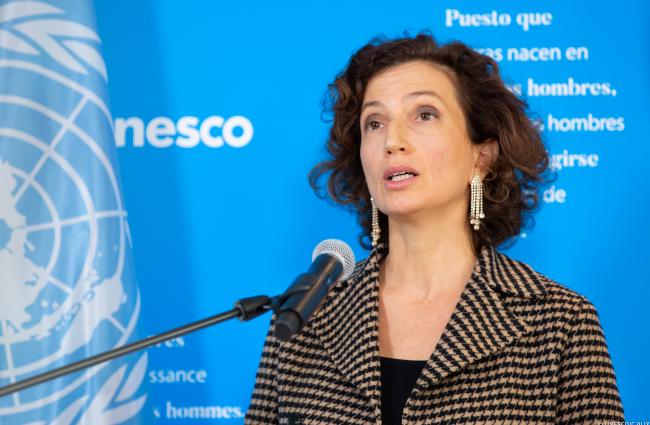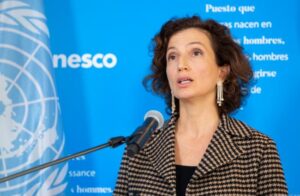About 5,000 judicial actors, including judges, prosecutors, lawyers and representatives of judicial training academies, as well as civil society representatives from around the world were trained on international standards and regional jurisprudence on freedom of expression in the joint Massive Open Online Course (MOOC) organized by UNESCO and the Bonavero Institute of Human Rights at the University of Oxford that ended on June 30, 2021.
The MOOC was led by high-level experts in the field of human rights and freedom of expression, including guest speakers such as the UN Special Rapporteur for Freedom of Opinion and Expression, judges from the African Court on Human and Peoples’ Rights, the European Court of Human Rights, and the Inter-American Court of Human Rights as well as a representative of the International Association of Prosecutors.
- The course which focused on international standards on freedom of expression, access to information and the safety of journalists had participants from the Philippines, Kenya, United States, Brazil, India, Thailand, Zimbabwe and Zambia.
The 5-week course, which held from May 10 till June 7, 2021, was unique in its global scope on freedom of expression issues, and particularly targeted judges and members of the judiciary, given their essential role in the promotion and protection of the right to freedom of expression.
The course strengthened the knowledge and capacities of judicial actors on regional and international human rights standards through five Modules, including, (1) the general principles and scope of freedom of expression; (2) the limitations on the right to freedom of expression; (3) the right of access to information; (4) the question of the safety of journalists; and, (5) challenges created by the digital world.
Notably, the course raised awareness of judicial actors on the legal protection and rights of journalists under international law, particularly addressing the threats, attacks and killings of journalists, the specific nature of threats against women journalists, as well as the importance to protect the secrecy of sources for journalists.
Since 2013, UNESCO’s Judges’ Initiative has trained judicial actors and representatives of civil society on the international and regional standards on freedom of expression, access to information and the safety of journalists in Latin America, Africa and the Arab region. Following the global MOOC on freedom of expression, a total number of 23,000 judicial actors and civil society representatives from 150 countries have been trained on these fundamental issues.
While the first global MOOC was in English, subsequent editions will be rolled out in additional languages in the future. The course received support from the Multi Donor Programme on Freedom of Expression and Safety of Journalists.
In continuity with these efforts to raise awareness on issues related to freedom of expression, UNESCO has also developed an explainer video on the role of the judiciary in ending impunity for crimes against journalists, available in 6 UN languages: English, French, Spanish, Arabic, Russian and Chinese.







